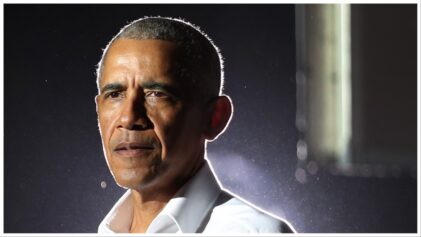While President Obama publicly worries about the use of chemical weapons on Syrians, there certainly is no shortage of folks here in the U.S. who deserve public worry, too.
The latest disturbance comes from The Associated Press, which released a stunning report that for the past two decades researchers funded by the National Institutes of Health tested AIDS drugs on hundreds of foster children, often without providing them with advocates who could act in the children’s best medical interest.
Some of the participants in the studies, which were conducted in at least seven states, suffered side effects such as rashes, vomiting and sharp drops in infection-fighting blood cells as they tested antiretroviral drugs to suppress AIDS, or other medicines to treat secondary infections, according to the AP.
The story said the research was conducted in at least seven states — Illinois, Louisiana, Maryland, New York, North Carolina, Colorado and Texas — and involved more than four dozen different studies. The foster children studied ranged from infants to late teens, according to interviews and government records.
To be sure, the testing provided care for foster children by “world-class researchers at government expense, slowing their rate and extending their lives. But it also exposed a vulnerable population to the risks of medical research and drugs that were known to have serious side effects in adults and for which the safety for children was unknown,” the AP reported.
Perhaps more chilling, back in 1983 the government began requiring that independent advocates be appointed for foster children enrolled in studies that “involved greater than minimal risk and lacked the promise of direct benefit.”
According to the AP, “some foster agencies required the protection regardless of risks and benefits.”
Unfortunately, in this case, that often did not happen, even after some research institutions promised they would in order to get access to the children.
The U.S. has a long and ugly history of experimenting on people without their full consent and sometimes without their knowledge. In many cases the results weren’t known until years after the testing was completed.
- In 2003, the Tuscaloosa News reported that throughout the 1840s, J. Marion Sims, who is often referred to as “the father of gynecology,” performed surgical experiments on enslaved African women, without anesthesia. Many of the women died from infections related to the tests.
- In the 1880s, in Hawaii, a Californian physician working at a hospital for lepers injected six girls under the age of 12 with syphilis.
- In 1911, according to the Annals of Internal Medicine, Dr. Hideyo Noguchi of the Rockefeller Institute for Medical Research injected 146 hospital patients (some of whom were children) with syphilis. He was later sued by the parents of some of the child subjects, who allegedly contracted syphilis as a result of his experiments.
African-Americans are still wary of medical testing because of the infamous Tuskegee syphilis experiment. Run between 1932 and 1972 in Tuskegee, Alabama, by the U.S. Public Health Service, it provided “treatment” to 400 black men who had syphilis. The men were not told they had the disease and they were not given treatment so that researchers could study its effects on the body.
By the end of the study in 1972, only 74 test subjects were still alive, 28 died of the disease, 100 died of related problems, 40 of their wives had been infected and 19 of their children were born with congenital syphilis. The program was not shut down until details were leaked to the media, sparking public outrage.
There are numerous, documented instances of chemical and radiation experiments conducted in this country, on its own people. Who came to the rescue of those Americans? No nation waged a punishing strike of any kind or sent an invasion force to make the U.S. put an end to these experiments. Yet the U.S. feels obligated to somehow stop other countries treating their people badly.
There is a distinction, one supposes, between medical experiments presumably designed to determine treatment outcomes and the use of, say, chemical weapons to keep people in line, but not much of one.
While objecting to the inhumane use of weapons by a government against its people, it is also incumbent upon those who criticize to look at how their own citizens are being treated. Using the most vulnerable and disadvantaged people to further a research goal is—if we are to be believed as a country that values personal freedoms and respect for ourselves and others—downright un-American.
Jackie Jones, a journalist and journalism educator, is director of the career transformation firm Jones Coaching LLC and author of “Taking Care of the Business of You: 7 Days to Getting Your Career on Track.”


